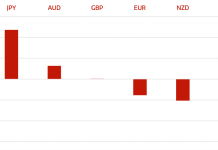With the prospect of regulation looming on the horizon, the social trading industry is in something of a state of limbo, unsure of how to prepare for any potential changes that may be forthcoming. Yesterday, we looked at how two major social trading providers – Tradeslide and eToro – have reacted to the messages coming from EU and UK regulators on the issue. Today, we shall be exploring the challenges faced by brokers, technology providers, trade leaders, and regulators in preparing for the next steps.
Probably the biggest challenge for all concerned is to work out which functions and services fall into existing regulatory categories, and which ones require new or revised categorization. One of the big questions is whether services that give retail clients connections to copy trading will be regarded as portfolio managers, because the customers have no control over the execution of trades on their behalf.
It’s a bit of a grey area, because it could be construed that by agreeing to copy trades, it could be argued that it is still the client that is executing the trade, rather than the signal provider. However, in effect, the result is very similar to that which you might get with a fund which invests on behalf of its clients – the only real difference being that the client executes each trade automatically using their own account, rather than handing over money to be invested.
In fact, in a copy trading scenario, there are usually three or four parties, and working out which ones are fulfilling traditional (i.e. regulated) roles can be very much a case of trying to fit square pegs into round holes. You have the client, the signal provider/trade leader, the broker, and (if it isn’t the same as the broker) the social platform provider. Aside from the client, any one of the other three could be construed as managing investments, but they could all reasonably claim that they aren’t. Together, they may be acting effectively like a fund manager, but in basic practical terms, they aren’t.
As we mentioned yesterday, social trading platform provider Tradeslide attempted to pre-empt the effects of the yet-to-be decided regulation by gaining FCA authorization to act as an FX Investment Manager. Yet, it remains to be seen whether this will prevent their trade leaders from having to do likewise in order to continue to offer their trade signals for copy trading purposes in the future.
Aside from the challenges of meeting UK and EU regulations, there are other territories to consider, where regulations may not exist, or where they will differ. This could mean that services have to be tailored – and possibly isolated – to the different regulatory environments of various countries and regions. So, you could have some amazing traders in Japan that could attract a global audience of copiers, but the differences in regulation might make it impossible for clients in some regions to do so, forcing them to pick from an altogether more limited pool of signal providers.
The more countries that introduce non-harmonized regulations on copy trading, the more fragmented the industry will become in a regional sense. At the moment, there is nothing to stop investors in the UK from copying traders based in Australia, for example, but this could all change in the next couple of years. Some brokers may relocate to outside of the EU in order to offer a service with a global reach, but the loss of businesses (and their tax revenue) is not likely to be something that the EU would like to encourage.
So, it is clear that regulators in the EU and elsewhere have something of a dilemma – regulate now to protect clients but risk the health of a growing industry, or keep the status quo until the industry reaches a stage of maturity where regulation becomes essential. As is often the case with matters of this type, the regulators have been slow to act, and it may well be that they see no advantage in hurrying along potentially damaging regulation at a stage when it is not particularly needed. However, if they leave it too late, then the industry will grow large and powerful, and regulation would become more problematic as a result.
Tradersdna is a leading digital and social media platform for traders and investors. Tradersdna offers premiere resources for trading and investing education, digital resources for personal finance, market analysis and free trading guides. More about TradersDNA Features: What Does It Take to Become an Aggressive Trader? | Everything You Need to Know About White Label Trading Software | Advantages of Automated Forex Trading













































